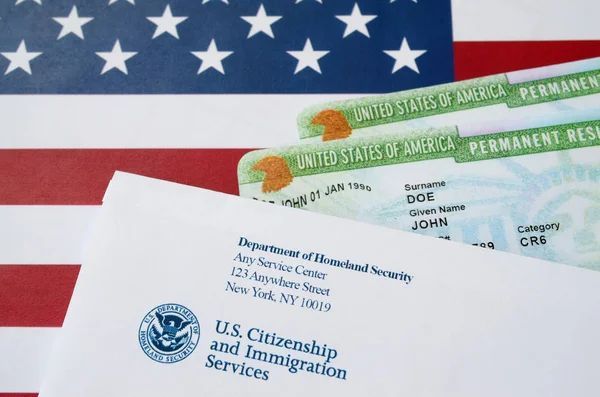🗣️ Fluent in English, Spanish & Portuguese 🌍
Finding the Perfect Immigration Attorney for You
How to Choose the Right Immigration Attorney
Your Guide to Finding the Best Legal Support
Choosing the right immigration attorney can be a daunting task, especially given the complexities of immigration law. Whether you are seeking a visa, green card, or facing deportation, having the right legal representation is crucial. This guide will help you navigate the process of selecting an immigration attorney who meets your needs and can effectively advocate for your case. The right attorney can make a significant difference in the outcome of your immigration journey, so it is essential to take the time to find someone who is not only qualified but also a good fit for you personally.Understanding Immigration Law
Immigration law encompasses a wide range of legal issues, including:- Visa applications
- Green card petitions
- Asylum requests
- Deportation defense
- Naturalization processes
Key Factors to Consider When Choosing an Immigration Attorney
1. Specialization and Experience
Look for an attorney who specializes in immigration law. Consider the following:- Years of experience in immigration law
- Track record of successful cases
- Specific experience with your type of immigration issue
2. Reputation and Reviews
Research the attorney's reputation in the legal community. You can:- Check online reviews on platforms like Avvo or Google
- Ask for references from past clients
- Consult with local bar associations for any disciplinary actions
3. Communication Skills
Effective communication is vital in legal matters. Ensure that the attorney:- Explains complex legal terms in a way you understand
- Is responsive to your questions and concerns
- Provides regular updates on your case status
4. Fees and Payment Structure
Understanding the attorney's fee structure is crucial. Consider the following:- Hourly rates vs. flat fees
- Payment plans or financing options
- Additional costs (filing fees, etc.)
5. Personal Connection
Choosing an attorney is not just about qualifications; it's also about comfort. You should feel:- Respected and valued as a client
- Confident in their ability to handle your case
- At ease discussing personal and sensitive information
Where to Find Immigration Attorneys
There are several resources available to help you find qualified immigration attorneys:- Online Directories: Websites like the American Immigration Lawyers Association (AILA) provide directories of immigration attorneys.
- Referrals: Ask friends, family, or colleagues for recommendations.
- Local Bar Associations: Many local bar associations offer referral services to help you find qualified attorneys in your area.
Questions to Ask During Your Initial Consultation
Once you have narrowed down your options, schedule consultations with potential attorneys. Here are some questions to consider:- What is your experience with cases like mine?
- What is your approach to handling my case?
- How do you communicate with clients?
- What are your fees, and what services are included?
- What is the expected timeline for my case?
Red Flags to Watch Out For
While searching for an immigration attorney, be aware of potential red flags, such as:- Lack of experience in immigration law
- Poor communication or unresponsiveness
- Unclear fee structures or hidden costs
- Negative reviews or complaints from former clients
Making Your Decision
After your consultations, take time to reflect on your options. Consider the following:- Which attorney made you feel most comfortable?
- Who demonstrated the most knowledge and expertise?
- Which fee structure aligns best with your budget?
Conclusion
Choosing the right immigration attorney is a critical step in navigating the complexities of immigration law. By considering factors such as specialization, reputation, communication skills, and personal connection, you can find an attorney who will effectively advocate for your case. Remember, this decision can significantly impact your future, so take the time to make an informed choice. The right attorney will not only guide you through the legal process but also provide support and reassurance during what can be a stressful time. To schedule a consultation with Quattrochi, Torres and Taormina, please visit this link. Disclaimer: The information provided in this blog post is for general informational purposes only and does not constitute legal advice. The content is not intended to create, and receipt of it does not constitute, an attorney-client relationship. No action should be taken based on the content of this blog post without first consulting qualified legal counsel. While every effort has been made to ensure the accuracy and completeness of the information, Quattrochi, Torres & Taormina, P.A. makes no warranties or representations as to the accuracy, completeness, or suitability of the information for any purpose. Quattrochi, Torres & Taormina, P.A. will not be liable for any errors or omissions in this information nor for the availability of this information. Any reliance you place on such information is strictly at your own risk. Quattrochi, Torres & Taormina, P.A. disclaims any and all liability with respect to actions taken or not taken based on the contents of this blog post to the fullest extent permitted by law. This post does not cover every possible situation, and you should always consult with an attorney or the relevant agency before taking any action. By using this site and relying on the information provided, you agree that Quattrochi, Torres & Taormina, P.A., its partners, employees, and affiliates, shall not be held liable for any direct, indirect, incidental, special, or consequential damages or losses, whether in contract, tort, or otherwise, arising out of or in connection with the use of the information contained in this blog post.
By Juan Torrico
•
January 16, 2025
Discover the latest updates on Temporary Protected Status (TPS) as new countries are added to the list, providing crucial support for individuals facing crises. Learn about eligibility, application processes, and the benefits of TPS to secure your future in the U.S.

By Juan Torrico
•
January 9, 2025
Stay updated on the latest developments in border wall construction and security measures, as we explore funding, technological advancements, and community impacts shaping the future of U.S. border policy. Click to learn more about the complexities and implications of these critical initiatives!
CONTACT US
950 S. Winter Park Dr., Suite 207
Casselberry, FL 32707
PRACTICE AREAS









